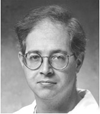 No mysticism today, but a meditation nonetheless. I have in mind the
once-again confused state of matters for the patient with cardiac
disease presenting for non-cardiac surgery. When I left off in my
thinking, snug (and smug) in my self-assurance, it was January 2005.
Life was good! Eagle and Fleischer (and all the rest..) had published,
in 2002, a lovely practice guide stratifying risk by extent of
procedure, severity of risk factors, and had even published a sexy
little flow chart suggesting how to proceed. To make matters even
better, intervening publications highlighted the protective effects of
Beta-blockers, statins (who knew they had an acute protective
effect?), and the interesting observation that many post-op MI's
smolder (elevated i-troponins for hours or days) before they burst
forth. (At least, that's one of the off-hypothesis impressions I took
from this data.) McFalls et al did their remarkable study (CARP) in the VA
system (where else in America could such a thing be done?) where they
took a bunch of veterans with known coronary artery disease of
sufficient severity to warrant intervention (CABG or PCI), and
randomized them to either have their hearts fixed before abdominal or thoracic aneurysm surgery, or after. No
kidding-you can look it up! Here. No differences in outcomes! No
differences!(They eliminated critical aortic stenotics (Duh!) and Left
mains (hmmm.) Lots of letter-to-the-editor chatter about this study, as
befits a work of this breathtaking hypothesis and conclusion. You'll
have to read them yourself...
No mysticism today, but a meditation nonetheless. I have in mind the
once-again confused state of matters for the patient with cardiac
disease presenting for non-cardiac surgery. When I left off in my
thinking, snug (and smug) in my self-assurance, it was January 2005.
Life was good! Eagle and Fleischer (and all the rest..) had published,
in 2002, a lovely practice guide stratifying risk by extent of
procedure, severity of risk factors, and had even published a sexy
little flow chart suggesting how to proceed. To make matters even
better, intervening publications highlighted the protective effects of
Beta-blockers, statins (who knew they had an acute protective
effect?), and the interesting observation that many post-op MI's
smolder (elevated i-troponins for hours or days) before they burst
forth. (At least, that's one of the off-hypothesis impressions I took
from this data.) McFalls et al did their remarkable study (CARP) in the VA
system (where else in America could such a thing be done?) where they
took a bunch of veterans with known coronary artery disease of
sufficient severity to warrant intervention (CABG or PCI), and
randomized them to either have their hearts fixed before abdominal or thoracic aneurysm surgery, or after. No
kidding-you can look it up! Here. No differences in outcomes! No
differences!(They eliminated critical aortic stenotics (Duh!) and Left
mains (hmmm.) Lots of letter-to-the-editor chatter about this study, as
befits a work of this breathtaking hypothesis and conclusion. You'll
have to read them yourself...
 Then,
ashes-ashes-we-all-fall-down! Coated stents, the salvation of all
mankind, apparently come with a lifetime annuity for Bristol-Meyers in the form
of P-cubed; perpetual-plavix-prescription. Oh, you can probably stop
after a year, but they won't promise your stent won't clog like a
toilet after your 4-year old flushes three rolls of toilet paper. So, what are we to do? Play "plavix-roulette" with or without heparin drip, like a mechanical valve? Wait 4 to 6 months? Just
to highlight the predicament, a note appears on our practice's "can you believe it?" bulletin
board regarding a $10,000,000 jury award against
some hapless cardiologist, who, poor sap that he was, probably read the
literature, and knew he didn't have to cath that poor guy with the
stable angina who was having his colon resected. (Time for a
disclaimer; I saw this six months ago, and now can't find any reference
anywhere to it online; can anybody help?)
Then,
ashes-ashes-we-all-fall-down! Coated stents, the salvation of all
mankind, apparently come with a lifetime annuity for Bristol-Meyers in the form
of P-cubed; perpetual-plavix-prescription. Oh, you can probably stop
after a year, but they won't promise your stent won't clog like a
toilet after your 4-year old flushes three rolls of toilet paper. So, what are we to do? Play "plavix-roulette" with or without heparin drip, like a mechanical valve? Wait 4 to 6 months? Just
to highlight the predicament, a note appears on our practice's "can you believe it?" bulletin
board regarding a $10,000,000 jury award against
some hapless cardiologist, who, poor sap that he was, probably read the
literature, and knew he didn't have to cath that poor guy with the
stable angina who was having his colon resected. (Time for a
disclaimer; I saw this six months ago, and now can't find any reference
anywhere to it online; can anybody help?)
So, here we are. Now, the cardiologist is back in whack-a-mole mode; and, if he finds a lesion, persuade him that he shouldn't use "the best" technology immediately, but should rather wait two weeks so that some gas-passer can take the patient on a roller-coaster ride through surgery-land. As they say, "don't try this at home;" I don't mind using judgment. But it's pretty hard when we have three-way distributed judgment (surgeon-cadiologist-anesthesiologist) not to mention the poor patient, who is frequently left to make a choice of how she wants to proceed based upon a hopelessly muddled set of risk-benefit variables.
I know a few courageous cardiologists who, finding amenable pre-op lesions, will plasty rather than stent, temporizing until a couple of weeks after surgery. But who can blame the guy who feels the need to fix what he sees? I usually try to schedule a three-way between myself, the surgeon, and the cardiologist prior to cath, if that's the way we are going. I want the cardiologist to hear the surgeon's assessment of the relative acute need for surgery in these "in-betweeners." I call them "in-betweeners" because they are the patients who are not true emergencies (bowel obstruction) in whom we just go, and the fully electives (the takedown colostomies, for instance). This includes cases such as colectomy for adenocarcinoma, thoracic biopsies of lung nodules, peripheral vascular and the like. Once the cardiologist is in her lab, she's going to do what her judgment dictates, but I want to ensure that her judgment is "informed" by the overall clinical situation.
Ilsa: "Oh, I don't know what's right any longer. You'll have to think for both of us, for all of us."
Casablanca, 1942
Actually, none of this is bad news; it's just messy. So we have to wade in and organize care for the patient. Of course, we can always just "pass gas" and let the others decide for us; all we have to do is cancel the patient for "cardiac clearance," and wait for the patient to come back someday... But that wouldn't be "The Ether Way", now would it?
 Mitch Keamy is an anesthesiologist in Las Vegas Nevada
Mitch Keamy is an anesthesiologist in Las Vegas Nevada
 Andy Kofke is a Professor of Neuro-anesthesiology and Critical Care at the University of Pennslvania
Andy Kofke is a Professor of Neuro-anesthesiology and Critical Care at the University of Pennslvania
 Mike O'Connor is Professor of Anesthesiology and Critical Care at the University of Chicago
Mike O'Connor is Professor of Anesthesiology and Critical Care at the University of Chicago
 Rob Dean is a cardiac anesthesiologist in Grand Rapids Michigan, with extensive experience in O.R. administration.
Rob Dean is a cardiac anesthesiologist in Grand Rapids Michigan, with extensive experience in O.R. administration.

whack a mole
good description of evidence based medicine where the evidence just wont stay still. after 25 yrs of seeing steroids on off on off on off as just one example it is dificult to put much faith in ebm, esp if the evidence runs counter to good well based physiology.
much of it is simple design flaws. take a drug found to be brain protective given right after a brain insult then do a clinical trial where you can wait 6 hours to give it and....surprise...ebm is quoted as saying the therapy is no good!
ak
Posted by: andrew kofke | July 30, 2024 at 01:31 AM
One of my favorite cardiologists, an extraordinarily good guy with whom I loved to have jaw to jaw political debates, was given to hyperbole. "This patient is has the worst coronaries of any who's walking around." "This patient has the most brittle hypertension I've ever seen." It took me a couple of years to add the grain of salt, having done a few operations differently than I'd have preferred, in the name of a brief anesthetic, and having the patient -- tip of hat to excellent anesthesia -- sail through. I've seen pretty fair cardiologists "clear" or "not clear" in puzzling ways. Armed with appropriate data, I trust the anesthesiologists view more than the cardiologist, vis a vis surgical risk (whatever that is) for non cardiac surgery. Best of all worlds: a gas passer who does lots of cardiac.
Posted by: Sid Schwab | July 31, 2024 at 05:22 PM
hey Sid! thanks for dropping by. There are a couple of things I know from the literature and experience that would interest you about all this. First, length of surgical time is almost certainly not an independent predictor of peri-operative MI. But complexity of surgery probably is, with really major cavity surgery having some small risk, and simple surgery (i.e.hernia) almost none. So length of surgery and incidence of MI are vaguely related as both being dependent on extent of surgery.In my experience, likewise hypertension, if carefully managed is not an intra-operative risk at all; the exception being cocaine/amphetamine induced acute hypertension, which can be scary and risky for bleed. THis assumes that the anestehsiologist doesn't try to "fix" severe pre-op hypertension but lets it ride high. That may be a nuisance for you, but is usually manageable with diligent application of sparks and clips...
Peri-up MI's come in two categories theoretically; intra/immediate postop, which are non-q wave (used to be called subendocardial, or non-transmural) related to tachycardia and or hypo/hyper-tension, and transmural MI's (acute coronary syndrome, acute coronary occlusion, plaque rupture etc) related to the hypercoagulable state that is a consequence of the inflammation and stress of surgery. These can (and usually do) occur days post-op, when those platelets are really revved up. Revved up platelets are like whipped up dogs; they'll go after anything; they like stents (high incidence of post-op stent occlusion) DVT (not sure if this is platelet mediated or not; platelets are more active on the arterial side, but the hypercoagulable state is not limited to platelet activation.) So once the patient is induced, no need to hurry through the operation unless A) your anesthesiologist is a "gas passer" or B) the hospital is on fire.
I liked your last post a lot, but didn't have anything intelligent to add.
Cheers!
Mitch
Posted by: mkeamy | July 31, 2024 at 08:48 PM